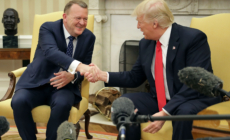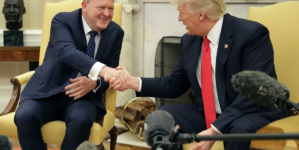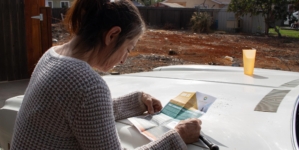-
Investigators Try to Determine Cause of Deadly Plane Crash in Kazakhstan - 20 mins ago
-
Fact Check: Did Denmark Offer to Buy United States? - 30 mins ago
-
George McKenna and Jackie Goldberg, lions of LAUSD, retire after fiery careers - 36 mins ago
-
Israel Loosened Its Rules to Bomb Hamas Fighters, Killing Many More Civilians - about 1 hour ago
-
ESG Outlook in 2025: Despite Headwinds, No Retreat From Sustainability - about 1 hour ago
-
Healthcare is Newsom’s biggest unfinished project. Trump complicates the task - about 1 hour ago
-
Dead Body Found in Wheel Well of United Airlines Plane - 2 hours ago
-
No, You Don’t Get an A for Effort - 2 hours ago
-
Taylor Swift’s Gesture to Travis Kelce After Christmas Touchdown Goes Viral - 2 hours ago
-
Blake Lively, Justin Baldoni and the Brute Force of Celebrity P.R. Tactics - 3 hours ago
UC regents move to ban political views from university home pages

University of California regents moved Wednesday to ban political opinion from main campus homepages, a policy initially rooted in concern about anti-Israel views being construed as official UC opinion.
Political opinions may still be posted on other pages of an academic unit’s website, according to the proposed policy approved by two committees Wednesday and set for a final vote Thursday at the regents meeting in San Francisco.
The main homepage of a campus department, division or other academic unit would be reserved for news about courses, events, faculty research, mission statements or other general information.
Opinion must be published on other pages specifically labeled as commentary, with a disclaimer that they don’t reflect the entire university or campus. Those who want to post statements on their department websites must follow specific procedures and allow faculty members to weigh in through an anonymous vote.
Regent Jay Sures, vice chairman at United Talent Agency, has pushed for such action for the last few years, previously saying he has been troubled by “abuse” and “misuse” of departmental websites featuring anti-Israel sentiment and other opinions that do not reflect official university views.
After initially proposing a more restrictive policy, Sure said the final draft reflects a better balance between free speech and acknowledging both those who want to make statements and those who oppose them.
“This reflects that we value academic freedom, and it provides a very inclusive environment for the individual departments to put out statements and reflecting minority opinions within those departments,” he said.
Regent Rich Leib, who also strongly endorsed the policy, called assertions that regents were trying to quash free speech “BS” and said they were aiming for transparency by making clear who supports the political views posted on websites.
He added that some statements posted on websites were seen as “incendiary” and “repugnant” but would still be allowed under the new policy, which is “content neutral.”
Sean Malloy, a UC Merced associate professor of history and critical race and ethnic studies, asserted that regents were trying to “gag faculty speech” and that the proposed policy reflected efforts to repress the growing movement for Palestinian solidarity across UC campuses.
He noted that regents never tried to intervene in faculty statements on the Black Lives Matter movement after George Floyd’s killing, on climate change or in defense of immigrant students.
“It is only when faculty speech threatened to upset support for Israel and Zionism that the Regents saw fit to enact such a policy,” Malloy said in a statement to The Times. “It must be seen along with the dispatch of police against UC students, faculty and staff, as well as the newly adopted measures aimed against encampments as part of an effort by a group of Regents to hold the UC hostage to their own commitment to Zionism in the midst of a genocide against Palestine.”
Sures first took up the website issue after the UCLA Asian American Studies Center posted a statement in 2021 — along with colleagues in feminist, Middle Eastern and gender studies — decrying a surge in Israeli violence against Palestinians as “the latest manifestation of seventy-three years of settler colonialism, racial apartheid, and occupation intended to terrorize and displace” them.
After Hamas militants attacked Israel on Oct. 7 and Israel retaliated with a massive, ongoing assault on Gaza, some faculty in other UC departments also spoke out as protests inflamed campuses with rallies, encampments, sweeping police actions and arrests.
UC Santa Cruz’s critical race and ethnic studies department posted a call on its website for academic institutions to “act now to end Israel’s genocidal attack on Gaza.”
The UC San Diego ethnic studies department published a statement grieving the loss of lives on both sides in the Israel-Hamas war and supporting calls to end Israel’s occupation and dismantle “the apartheid system that creates the suffocating, dehumanizing conditions that can lead to resistance.”
The department also has posted statements opposing racism against Black people, Asian Americans and Muslims, along with caste-based discrimination. It now displays the comments on a section of its website marked “statements and commentaries” and includes the disclaimer that they “do not necessarily represent the views of all faculty and graduate students at the Department of Ethnic Studies, the Regents of the University of California, or the University of California, San Diego.”
The proposal to shift such comment from a department’s landing page to a separate spot specifically marked as commentary has gone through several iterations. The Academic Senate raised objections to an earlier version, saying it was too ambiguous, lacked clear measures for implementation and enforcement and potentially threatened to limit academic freedom.
But Sures and Regent Lark Park, who led board efforts on the website proposal, worked with the Academic Senate to incorporate some recommendations from a systemwide faculty committee review of the issue in 2021.
That review concluded, in consultation with university attorneys, that departments have the right to weigh in on political and social issues, although they cannot endorse candidates. The Senate provided guidelines, such as making clear that statements represented faculty members or groups and not the university and ensuring that minority or dissenting views are not squelched.
The policy now includes most of those guidelines but makes them mandatory. It requires campus departments to come up with procedures to develop statements, anonymously poll members to reduce pressure on those who may hold minority views and disclose how broadly the opinions are backed — by a “supermajority,” for instance — along with vote totals.
Source link




















